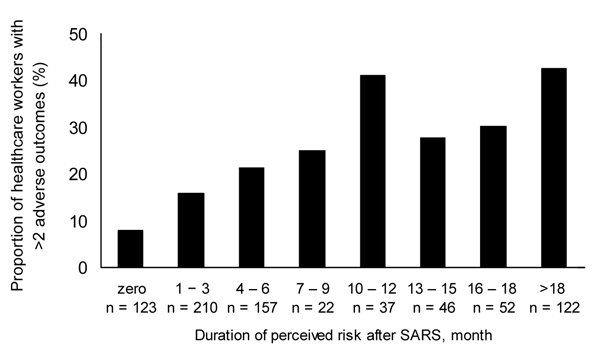Volume 12, Number 12—December 2006
Research
Long-term Psychological and Occupational Effects of Providing Hospital Healthcare during SARS Outbreak
Figure

Figure. Relationship between prolonged perception of personal risk and reporting multiple adverse consequences of severe acute respiratory syndrome (SARS) in Toronto healthcare workers. Adverse outcomes are burnout; psychological distress; posttraumatic stress; decrease in face-to-face patient time since SARS; decrease in work hours since SARS; increase in smoking, drinking alcohol or other behavior that might interfere with work or relationships since SARS; and >4 work shifts missed because of stress or illness in the past 4 months.
Page created: October 04, 2011
Page updated: October 04, 2011
Page reviewed: October 04, 2011
The conclusions, findings, and opinions expressed by authors contributing to this journal do not necessarily reflect the official position of the U.S. Department of Health and Human Services, the Public Health Service, the Centers for Disease Control and Prevention, or the authors' affiliated institutions. Use of trade names is for identification only and does not imply endorsement by any of the groups named above.